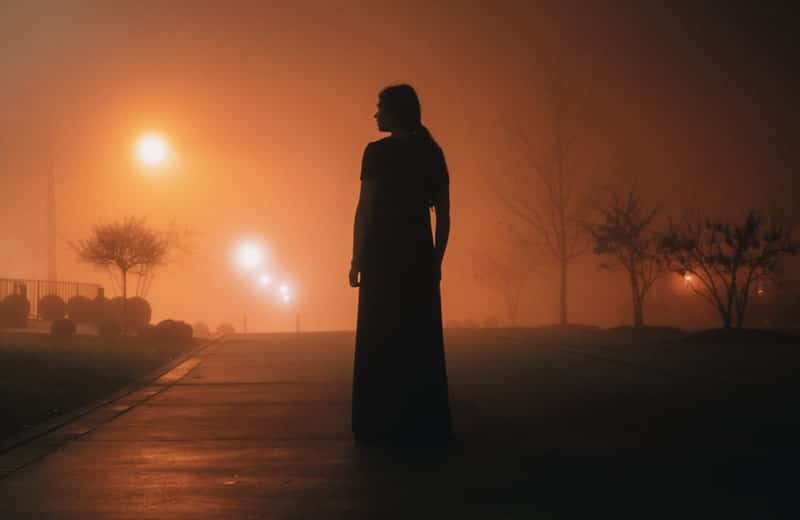0
During Eastertide we often hear about the importance of Mary Magdalene as being the first disciple to witness the resurrection. My friend, Fr. Terry Moran, had this perspective to share on the gospel account so familiar to us. I just wanted to share it with all of you.
The gospel sounds like Jesus adopted social distancing before its time. The scene begins very movingly. The gospel of John often draws on the Song of Songs – the only book of the bible that never mentions God and is composed of erotic love poetry in which a man and a woman delight in each other’s bodies. John does so here – The Song of Songs takes place largely in gardens; this story is set in a garden, not a cemetery, and draws on the motif in the Song of Songs of the desolate beloved searching for her lost lover. He calls her by name and she recognizes the lost loved one. Then there is a shocking coldness – “stop clinging to me” Jesus says, with all the tenderness of a 1950’s Irish monsignor. In John’s gospel nothing is ever as it seems on the surface and John is teaching a key theme of his gospel in this seemingly heartless exchange.
It’s a truth that our beloved Chris Doucot(Chris is a founder of the Hartford Catholic worker for whom this liturgy was celebrated) also learned in a conversion story he often tells about himself. As an undergrad studying religion with the Jesuits at Holy Cross College he was assigned to write about their radical brother, Fr. Daniel Berrigan. Back in the dark ages, before the internet, he was able to find Fr. Dan teaching in Kentucky at Berea College by dialing 411. He graciously took the call and spent an hour responding to tedious undergraduate questioning. And then time stopped. Chis prefaced a question with the conditional: “If you were a contemporary of Jesus…” He never finished the question. Fr. Dan interrupted: “But I am, aren’t you?”
That is a key theme of John’s gospel – nothing is reported as a past event. We are all, always contemporaries of Jesus. What happened in that garden happens to each of us. Jesus tells Mary – don’t cling to your earthly experience of me. Because if Jesus is merely a historical figure with every passing year his presence will become more and more remote. Jesus is not a past historical figure. He is our contemporary and we have as much access to relationship with him as Mary Magdalene did. Rather he sends Mary Magdalene back to the community of the brothers and sisters. In John, there is no ascension into heaven. There is a rather a descent into the community. For John, if we want to touch the body of the Risen Christ, we touch the bodies of the brothers and sisters. We are the risen body of Christ. Christ has no body now but ours – that is both a glorious truth and a damn annoying one! A Jesus in heaven doesn’t bother us too much; a Jesus who is discovered in the brothers and sisters is another story!
There’s another important truth in this gospel. The typical Easter proclamation in Scripture is the one Peter makes in the first reading “Jesus is Lord” That is a radical proclamation – Peter uses the word Kyrios which is normally a title given to the Emperor. If Jesus is Lord – Caesar is not. That profession undercuts every other power that would claim God’s sovereignty over human life. But that is not Mary’s proclamation – she says, “I have seen the Lord.” In that culture the personal testimony of a woman was worthless and women could not testify in court. Even a woman who was raped had to depend on a man witnessing it to have her claim heard. But our faith is based on valuing the personal experience of a woman who said, “I have seen the Lord.”
Years ago Paul VI, in an encyclical on evangelization, wrote “The modern world is not convinced by teachers. It only believes witnesses.” Unfortunately, the leadership of our church doesn’t get that – Pope Francis does – but our bishops do not – shouting louder and louder things no one cares about anyway is what our bishops do. So many teachers, so few witnesses. My Easter morning prayer for many years has been a slow reading of Dan Berrigan’s essay, “An Ethic of Resurrection.”
“Simply put, we long to taste that event, its thunders and quakes, its great yes. We want to test the resurrection in our bones. To see if we might live in hope, instead of the silva oscura, the thicket of cultural despair, nuclear despair, a world of perpetual war. We want to taste the resurrection. May I say we have not been disappointed.”
There’s a lot of Catholic chatter about what we give up for Lent. I suggest that it doesn’t matter so much what you give up for Lent. Much more important – what are we going to take up for Easter. What are we willing to risk for Easter? How are we hope for the body of Christ that is George Floyd, or a trans teenager, or women marginalized by the Church they love, or the people whom our economy routinely throws into its capitalist gears? How will we be a witness? How will we not think about Easter but taste it? How will we enter into that great yes? “I have seen the Lord.”
There is much to ponder in Terry’s questions in his homily. It reminded me so much of what Nancy Sylvester asked of us at the Providence Event. How will we be an icon of Providence in this wounded world today? How will we enter that great yes as Providence People?
Barbara McMullen, CDP
Related Stories



